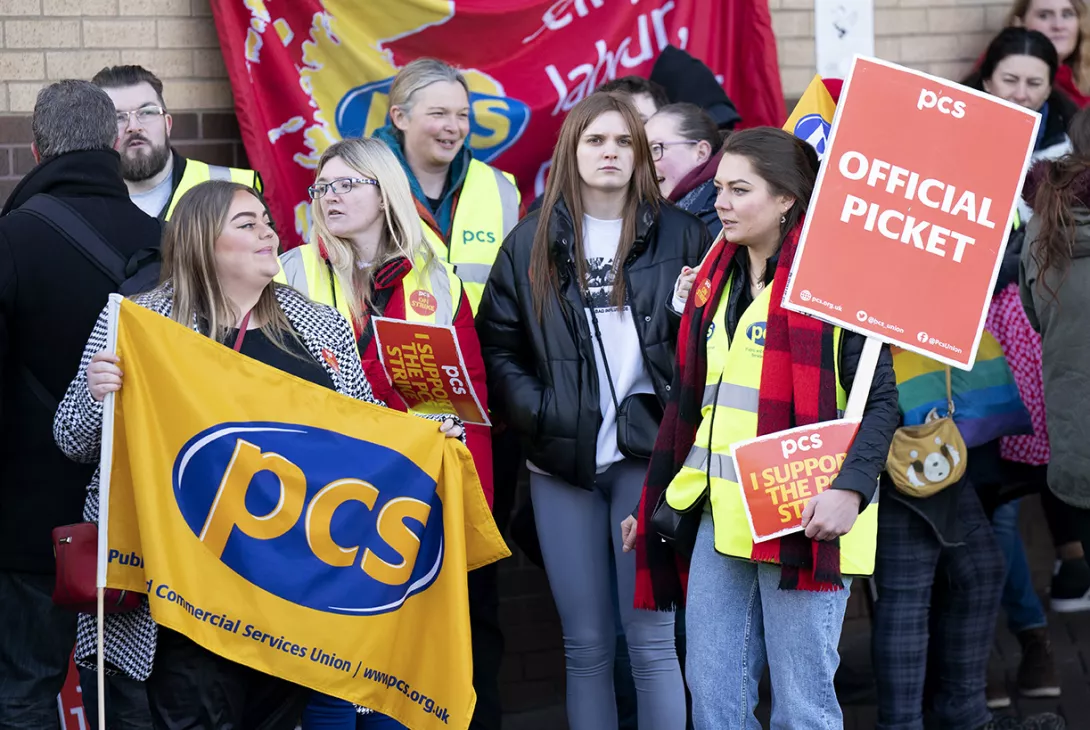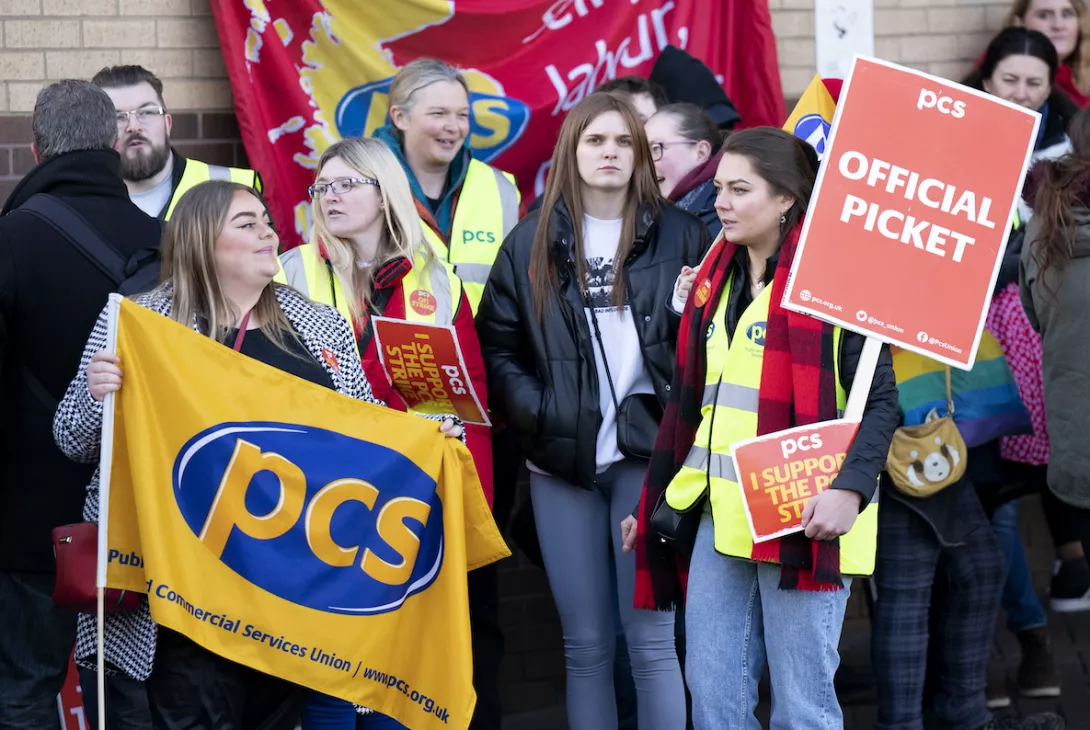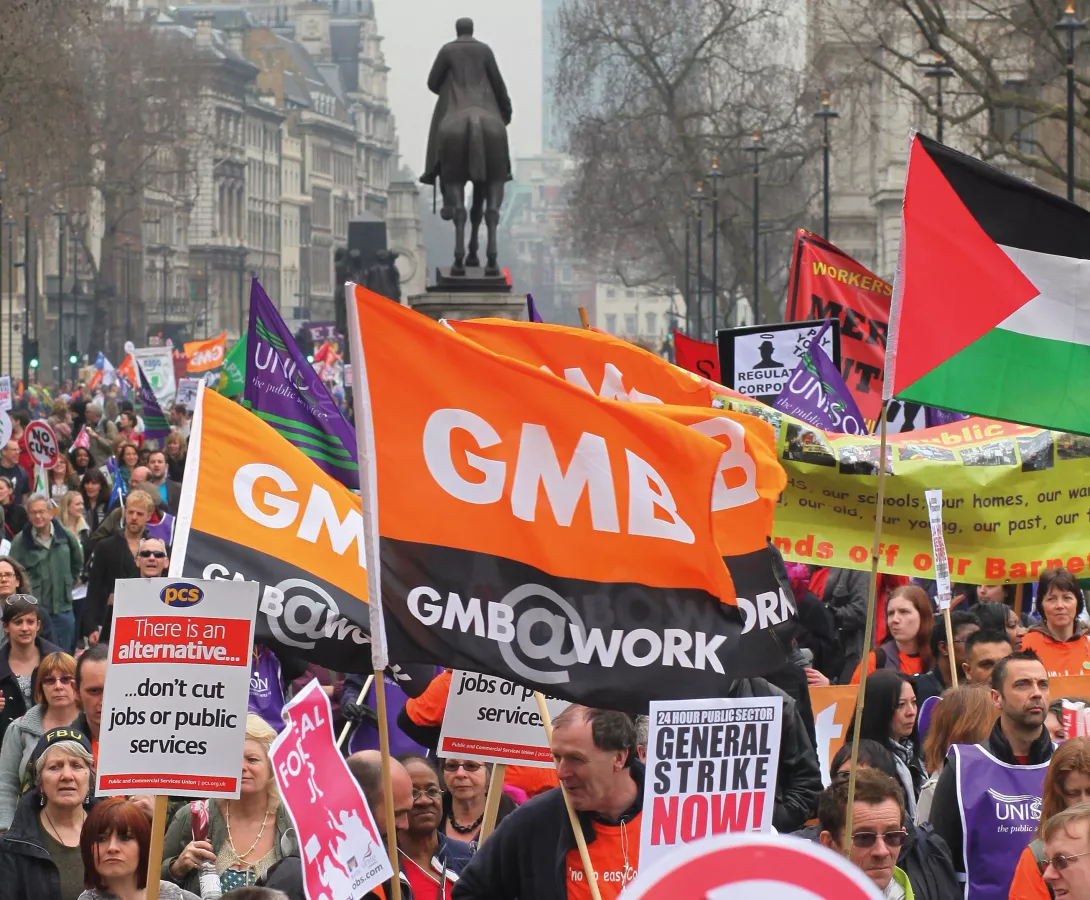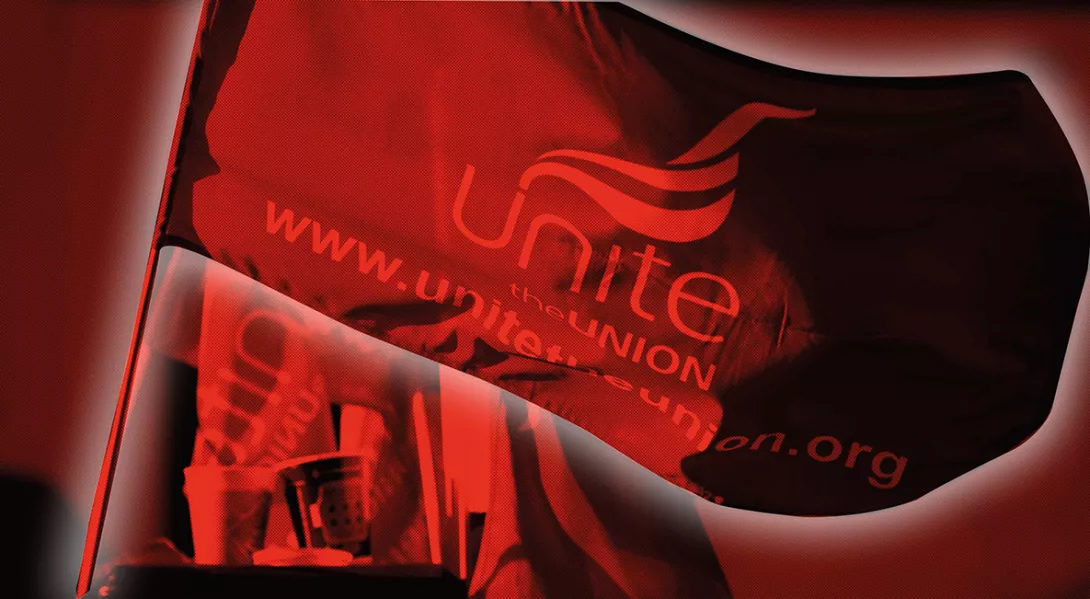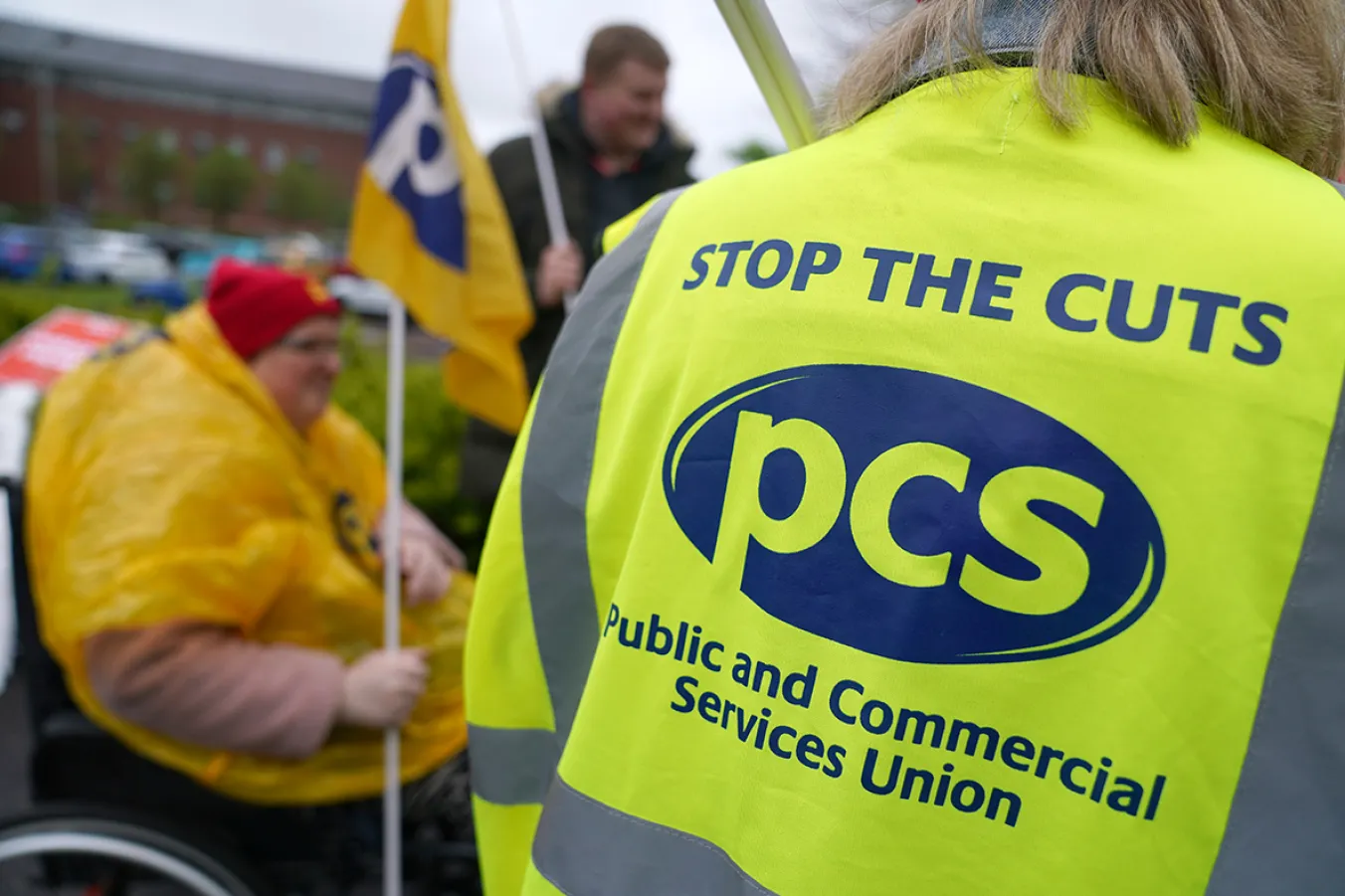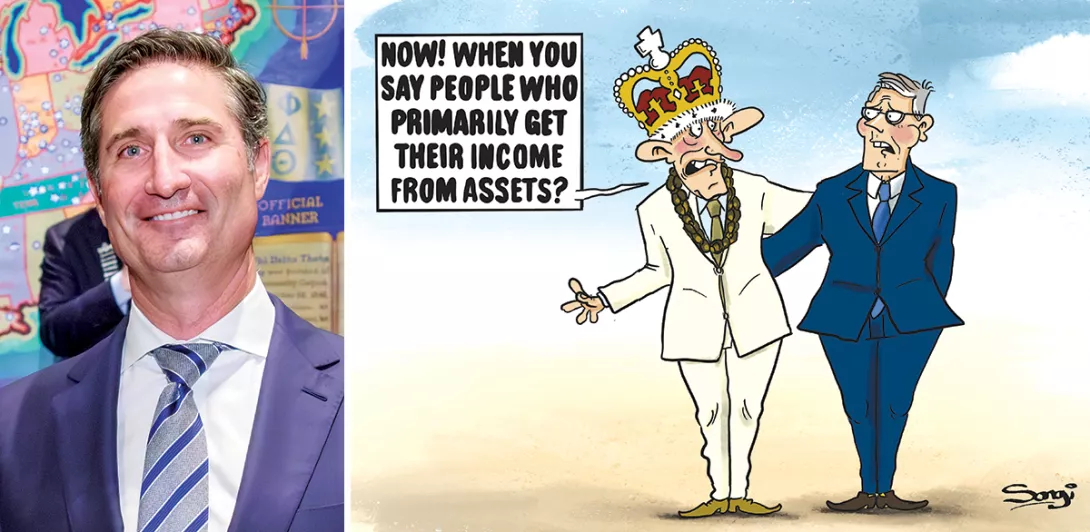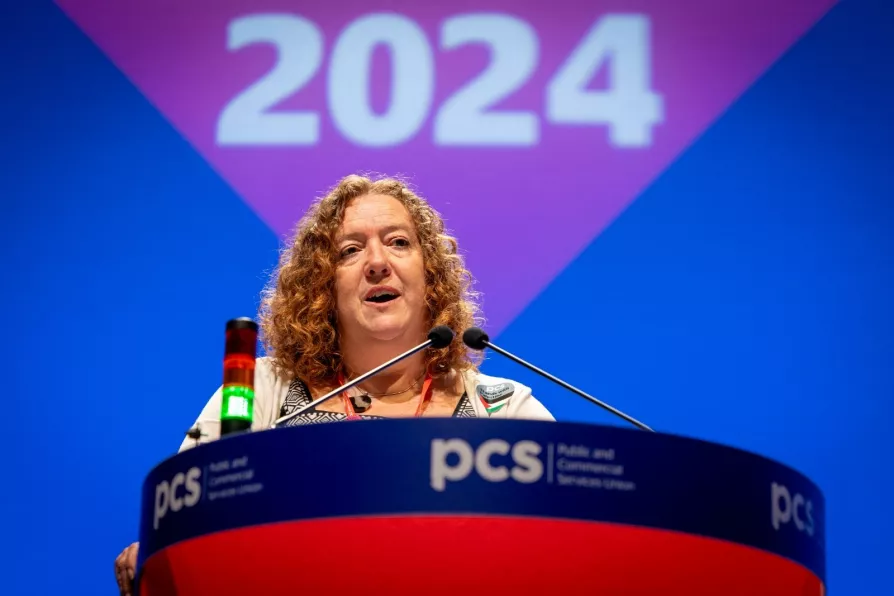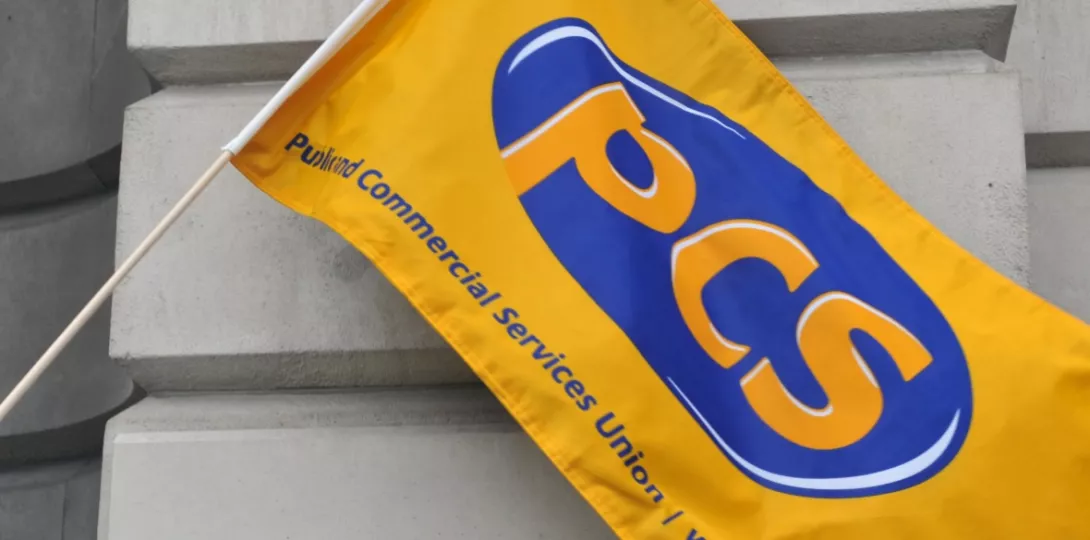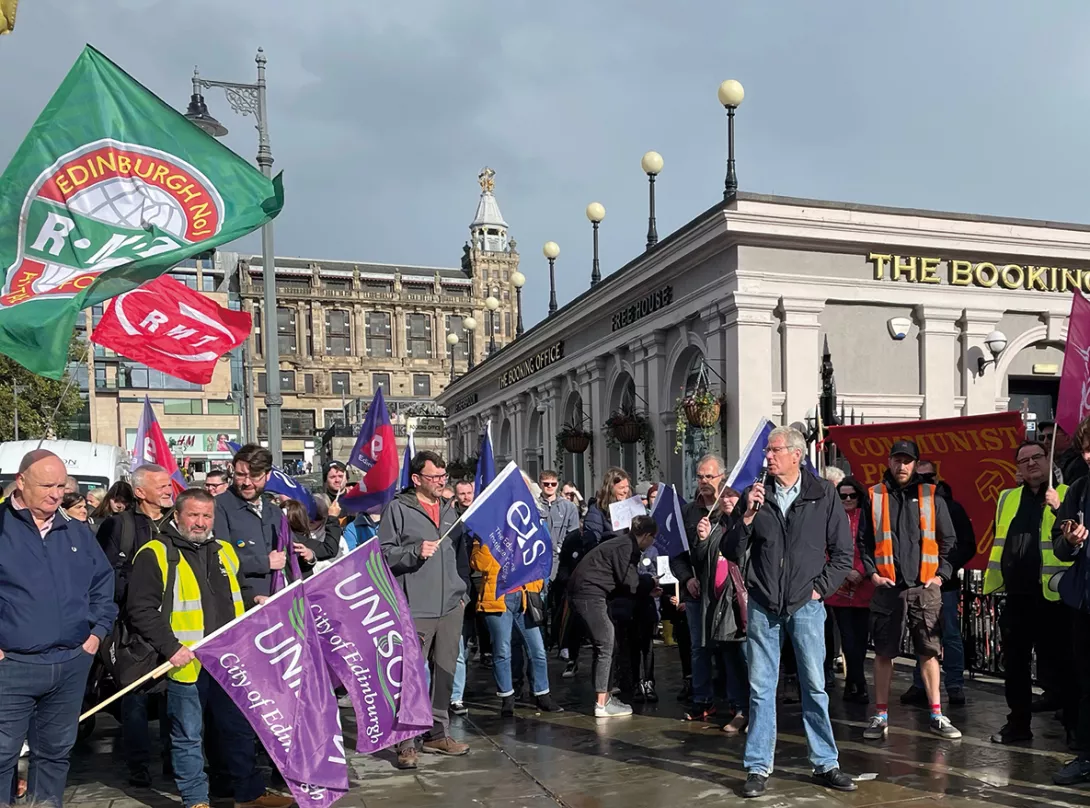
THE turmoil in the Tory Party continues, but Liz Truss’s government stands united and resolute on capping Civil Service pay at just 2 per cent when the cost of living is escalating out of control.
In August, a PCS survey found that one in 12 members working in the Civil Service and related bodies are using foodbanks.
Statements from union members voting yes to strike action in the current PCS statutory ballot catalogue harrowing accounts of government workers just trying to make ends meet — and real worries about the cost-of-living crisis to come.
John, a Home Office civil servant, is voting yes because he worries about paying his mortgage, paying bills, and feeding his family every day.
Laura works in the DWP and she and her partner have been saving for a house for nearly a decade — and every time they get close to having the complete deposit there’s another crisis.
Childcare costs outstrip salaries and the cost of transport is being weighed against eating for some. Others worry that they are forever in their overdraft.
PCS has also built up a dossier of around 150 testimonies from DWP staff describing having to go without showers, heating, food and other basics, as they cope with soaring inflation and paltry pay rises — relying on parents, pay-day loans and food banks to stay afloat. The cost-of-living crisis is unprecedented in its impact on many working-class people in every part of the country.
Last week, the Prime Minister was forced to admit she cannot deliver Boris Johnson’s timescale of three years to slash 91,000 Civil Service jobs. Their plans to return the Civil Service to 2016 levels does not consider the increased responsibilities landing on the Civil Service because of Brexit.
But the real reason the PM is backing down is the cost of redundancies on that scale would be up to £7 billion. So, if they impose recruitment freezes, then the pressure on the existing workforce will only intensify.
With pay, pensions, and redundancy terms all under attack, for many PCS members it is now a question of whether they can afford not to strike this winter.
The PCS ballot runs from September 26 until November 7, and the union is gearing up for a big fight. PCS members working in the Scottish government sector are also being balloted and the SNP administration is being told clearly that they cannot just wring their hands and pass on the Tory cap. An offer that is marginally better than the Tory 2 per cent will not be acceptable in this current climate.
Civil servants provide vital public services, as was laid bare during the pandemic when the government lauded them as heroes. A campaign of industrial action in those public services will remind the government of members’ worth.
The union is calling for a 10 per cent pay rise; a living wage of at least £15 an hour; an immediate 2 per cent cut in contributions that members have overpaid to their pensions since 2018; no further cuts to redundancy terms; and a job security agreement, coupled with the resources desperately needed to deliver public services.
By balloting for action, the PCS is seeking to join in and co-ordinate and work in solidarity with the other unions currently in dispute, and those also preparing to join the fight.
With the CWU, RMT and Aslef taking action in recent weeks, along with UCU and Unison higher education members in Scotland, the level of street solidarity for picket lines, marches and rallies across the country has been fantastic.
Roz Foyer, Scottish TUC general secretary, has led from the front in showing up to workers’ picket lines. The People’s Assembly, Enough is Enough and groups like Glasgow Strike Solidarity are turning people out onto the streets with a regularity and larger numbers than we have seen for a decade.
We need to maintain unity and momentum, as more workers and unions across civil services, NHS and education are being balloted and join the struggle.
On October 1, Enough is Enough held protests in 50 locations across Britain, and the People’s Assembly held a huge demonstration at the Tory conference on October 2 in Birmingham. It is important at this critical time that all movement groups work together in solidarity and not competition, or stretch activists too thin. In addition to strike action, we must remember to include community campaigners, disabled activists and Black Lives Matter groups.
The People’s Assembly has a called a national demonstration in London on November 5. It would be fantastic if we could get massive turnout to that, including delegations from Scotland.
Lynn Henderson is a senior national officer for the PCS union.
